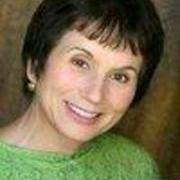Hundreds of people have asked me why someone develops an eating disorder. Of course many issues are involved, but from my exploration of this field over the years, I have concluded that there is one outstanding theme that runs through every person with an eating disorder whom I have encountered.
Early in their lives, people with eating disorders have experienced, on a sustained basis, relentless boundary invasion on every level.
When their physical, emotional, psychological, intellectual, sexual, and creative boundaries are consistently ignored and penetrated, people experience total boundary invasion. With no control and no way to end, protest, or, often, even acknowledge such invasions, these persons feel helplessness, despair, and a certainty that they are worthless to themselves or anyone else.
The consequences of such total invasion are vast. One consequence is an eating disorder. Having had so many boundaries disregarded, a person has no knowledge or skills in recognizing or honoring boundaries herself. She will eat or starve for emotional relief.
She may eat vast amounts of food for comfort value alone. She may deprive herself of food until her life is in danger. She has no internal regulator that tells her when she has reached her limit and experienced enough. Being oblivious to any boundaries means being oblivious to limits of any kind.
The compulsive overeater eats whenever and whatever she likes. She bases her choices on self-medication issues, not feelings of physical hunger.
The anorexic will not eat. There is no limit to her not eating. She will starve herself to death in search of relief from her emotional pain. She knows nothing of the experience of having enough. She couldn't say, "Enough," to an invader of her boundaries, and she can't say it to herself. The concept of enough has no meaning to her. She often feels that if she "disappeared," she might find some permanent relief.
I have heard countless anorexic young women talk ethereally, with a lost-in-a-beautiful-world-of-angels smile, of how wonderful it would be to become a vapor or a light dancing spirit in the clouds. Ah, such spiritual bliss, they imagine. In reality, it's the final self-protective act, to destroy their bodies and their lives completely. Then they can truly escape the complexities of being alive.
The bulimic will binge grotesque amounts of food. She will assault herself with more food than her body can tolerate.
The compulsive overeater will, at last, have to stop eating if only because of the pain in her distended stomach. Her body sets a final limit. The bulimic has no such limit. She experiences (in her mind) no consequences of the food assault on her body. When her body cannot bear more, she will vomit it all out. Then she will resume her binge. She may reach her body's limits many times. Each time she does, she can throw up again and continue.
Eventually she stops, because she is completely exhausted, or she is in danger of being discovered. "Enough" has no meaning to her. There are no limits and no consequences for her disregard of her boundaries.
Realistically, of course, there are plenty of consequences. Her behavior inflicts serious damage to her body. And each time she attacks herself with a binge-and-purge episode, she destroys more of her spirit, soul, self-esteem, sanity, health, and value to herself and others.
Each violation deepens her ritualistic behavior, and she becomes more entrenched in her disorder. The consequence is increasing anguish and despair. Yet the eating disorder is not the cause of that anguish and despair. The eating disorder exists to numb her from her already existing psychological agonies.
For a while, maybe a few years, the eating disorder successfully blocks her awareness of pain too difficult to bear. But eventually the protective device of the eating disorder becomes just another boundary invader, this time self-induced, that weakens and damages her even more.
What do I mean by a history of boundary violations? Blatant and extreme boundary violations involve sexual molestation, sexual abuse, and physical abuse. Much has been written about these areas now, especially in material exploring Post Traumatic Stress Disorder (PTSD) and Dissociative Identity Disorder (DID). Use your search engines to find some quality information posted on the Internet in these subject areas.
However, there are other kinds of boundary violations, and these are less dramatic, less discussed, more prevalent, and just as devastating to a persons psyche. When, in the name of caretaking, people in authority take over a young person's life, it constitutes boundary invasion.
When others deny her privacy, read her diary, borrow or take her things without permission, or use their ideas or goals or personalities to overwhelm her efforts in school or sports, that is a violation of her boundaries.
When others disregard or disdain her choices or deny her any control over her personal life, clothes, food, friends, and activities, they are invading her boundaries.
An invasion of boundaries also takes place when, in the name of caretaking, people give her no responsibilities of her own and attach no consequences to her actions. When the child or adolescent can have all the things she asks for without putting forth effort to earn such gifts, she learns nothing about personal effort, limits, consequences, or the meaning of enough. If she wants something, she gets it. That's all. If someone picks up her clothes, does her laundry, fixes her car, pays her bills, lends her money or things without expecting them returned, she experiences no boundaries and no limits.
If she doesn't have to keep her promises, if she doesn't reciprocate with caring actions for people who care for her, she learns nothing useful about herself in relationship to other people. The only thing she learns with certainty is that there are no limits to her behaviors or desires.
These boundary invasions are not loving acts, nor are they "spoiling" a child through overindulgence. Quite the contrary, they are acts of neglect. The child's taste, mind, capacity to learn, and ability to grow and function as an independent agent in the world remain unacknowledged.
When others, even well-meaning others, ignore her identity as a unique, developing, and competent individual and flood her with their personal agendas, she feels as if a steamroller had flattened out her psyche. She may learn to please, to manipulate, to compete, or to control, but she is unable to learn to be fully present in the world as her genuine self.
She doesn't learn that she has meaning and value. She doesn't learn that she can put that meaning and value within her to work to accomplish goals.
For example, if she breaks something, whether it is a lamp, a car, her word, or someone's heart, it is possible and healthier to give her the responsibility for making necessary repairs using her own resources and her own creativity. In such a process, she learns what effort means. She learns what responsibility and consequences for actions mean. She learns reasonable limits and reasonable expectations. She develops resources to make healthy and caring decisions in the future.
Without such lessons, she learns are the tricks involved in adapting quickly to the expectations of others or being manipulative to get what she wants. These are poor and insubstantial tools to rely on when building an adult life.
Somewhere inside, over time, she may gradually realize this. But without a sense of boundaries, she will only become bewildered and anxious. She will accelerate her practice of using her eating disorder as a way to numb her feelings of anxiety. She will use her manipulating skills to get what she wants from whomever she can exploit.
As time passes, fewer people in her life will allow themselves to be manipulated. The quality of her circle of associates will decline as she seeks people she can control with her inadequate methods of functioning in the world. She will find herself in bad company.
This becomes all the more reason to rely on eating disorder behaviors for comfort. The people around her are less reliable all the time. And finally, they tolerate her presence only because they can manipulate her.
She arrives at the total-victim position. Her manipulative skills backfire. People exist in this world who are better at manipulating and using than she. She has found them. She becomes their target and then their prey. Her dependence upon her eating disorder becomes her most valuable and trustworthy relationship.
Early in her development, she learned through massive boundary invasions (which perhaps seemed ordinary and unimportant at the time) that she was helpless to assert herself. She learned that she had no private or sacred space to cherish and respect. She could not acknowledge, even to herself, that she was being thwarted, invaded, controlled, manipulated, and forced to deny large aspects of her natural self. She had no recourse except to comply.
To succeed at being unaware of her natural tastes, curiosities, and inclinations and her pain in restraining her natural tendencies, she developed an eating disorder. Now that she's older and her manipulation skills are failing her, she only has her eating disorder to rely on. This may be the most crucial time in this person's life.
If her pain and despair are terrible enough and she is certain she cannot bear this way of living anymore, she still has choices. She can continue to rely on the eating disorder and by so doing take the path to self-destruction. Or she can reach out and get help.
This is a tough position for her. She's never known what enough was. Yet to choose to get help, she has to recognize that she has had enough pain. She's never known what a limit is. Yet she has to recognize that she has reached her limit and must choose between death and life. She has only known about pretense and manipulation. Yet she has to be honest to reach out for genuine help.
She feels massive anguish and pain before she stretches beyond her life pattern into what might bring her healing and recovery. She's reaching for something she can't imagine. It's difficult for a person with an eating disorder to decide to get help. She would have to allow herself to trust someone with knowledge of her real personhood.
She doesn't yet know that people who do respect and honor boundaries actually exist in this world. She doesn't yet know that there are people who can and will honor and cherish her most private and sacred inner spaces. She doesn't yet know that someday the trustworthy, respectful, steadfast, and competent caretaker she needs so badly can be herself.
Her first move toward recovery requires all the courage she can muster. Her recovery begins when with fear or rage, she rallies her courage to reach out for help.
Difficult, yes. But what she doesn't know yet is that she has been courageous all her life. She makes a grand discovery when she learns that she can apply her strength and courage to her own health. She can use her gifts to, at long last, be free of her eating disorder, be her genuine self in the world.
Professional Resources for Finding Help
Academy for Eating Disorders (AED)
American Anorexia and Bulimia Association (AABA)
Anorexia Nervosa and Related Disorders (ANRED)
Edreferral.com
International Association of Eating Disorders Professionals (IAEDP)
Joanna Poppink's Eating Disorders Resource List In-Patient Treatment Programs
National Eating Disorders Association (NEDA)
Joanna Poppink, Los Angeles psychotherapist, licensed since 1980 (MFT #15563), is deeply committed to bringing recovery to people suffering from eating disorders.
Her specialized psychotherapy practice is designed to allow clients to progress through anxiety situations to ongoing recovery from bulimia, compulsive eating, anorexia and binge eating. Her primary goal is to provide people with a way to achieve thorough and long lasting healing.
Eating Disorder Recovery book in progress through Conari Press
10573 West Pico Blvd. #20
Los Angeles, CA 90064
http://www.eatingdisorderrecovery.com
[email protected]





Add a Comment206 Comments
"I'm not sure if it ever occurred to you, calling someone else a bully is, in fact, bullying behavior.
It is possible to disagree with another person's point of view without disparaging them. "
How is it bullying behavior if you're calling out someone for bullying? Not all of the parents on here were rude but I can think of two individuals who made offensive comments on here. Granted one of them did apologize.
So if someone is offended by another individual are they not allowed to speak up?
ja
June 17, 2009 - 10:40amThis Comment
Jera, I am very sorry that you suffered so much, both from boundary violations and from an ED. I hope you got the treatment you needed and that you are now physically and mentally/emotionally healthy. No one should have to go through what you did.
Most families of children who manifest EDs are, however, loving and supportive of their children. They are close enough to their children to prevent boundary violations by others, or to treat the ill effects if that should happen temporarily to their child. Most families will do whatever they can to bring a child to health from any illness, physical or mental. Certainly there are abusive parents who do nothing but harm to their children, but that is just not the case in the vast majority of families. EDs can and do manifest in both kinds of families. The healthy families can literally save their children's lives. It is very sad that you had to save yourself, but a good thing that you were able to do so. Many other children have died as a result of either getting no treatment for an ED or not receiving successful treatment.
Whatever the causes are of EDs, the word needs to be spread that there are very successful treatments out there, that don't take many years and hundreds of thousands of dollars. These treatments can be done outpatient in much less time, with the help of devoted families in addition to the mental and physical health care professionals. I would have given much for the following link back in 1999 when my D was starving in front of my very eyes. http://www.maudsleyparents.org/whatismaudsley.html
June 17, 2009 - 9:25amThis Comment
Please, empowher management!
Speak to real experts such as those at Rogers Hospitals, Walden/MA, Remuda Ranch, UCLA, and other professionals for their opinions on what this woman has to say about ED causes.
Do NOT hold this woman up as an "expert" on eating disorders. To do so does a great disservice to the public at large.
June 17, 2009 - 6:44amThis Comment
Dear Jera,
Thank you for this most moving and articulate post. You think deeply and obviously have done a great deal of successful internal work.
Thank you for your patience in reading through this discussion and speaking so thoroughly and gracefully on many of the issues raised. I appreciate hearing from you.
Joanna
June 16, 2009 - 10:59pmThis Comment
Dear Joanna,
Thank you for your article. It's very difficult to read articles/books where they discuss the whole boundary issue. A lot of people are afraid to touch that because they don't want to be accused of '"blaming families", or, god forbid, suggesting that eating disorders are about more than just food and weight. I know that in my case, boundary violations were what started and kept my anorexia going for many many years. It wasn't a "biochemical imbalance", heredity (no one in my family suffers from EDs, depression, or anything like that. just me), or a "diet gone wrong". I had no control over my life, no defense against the boundary violations, and no one to stand up for me and my ED literally saved my life. It was the only thing that helped me get through those things and survive. Forcing me into some family therapy or "Maudsley approach" would have led me to suicide or simply exacerbated the boundary violations that were already happening. Certainly those approaches can be effective, but not in all cases.
I'm sorry that so many people are misunderstanding what you are trying to say and attacking you. I found it to be very articulate and compelling. As for those who were accusing you of being self promoting or not supporting people trying to recover (e.g. that ridiculous accusation that you were a therapist who sought money through keeping someone ill and therefore in treatment for a long time), I'm sorry that they're so narrow minded and I feel sorrier for any ED sufferer who has to deal with them.
As for that horrible comment someone made about ED sufferers and how their thinking is "twisted" and that they're "manipulative" and therefore lying if they allege abuse, that smacks of misogynistic victim blaming. I am an abuse survivor. Many of those same things are said about abused women who are trying to press charges against their batterer or keep her children safe from him. People often justify trying to take over an abused woman's life because-by virtue of her having been abused-they think she is stupid, not thinking clearly (even when the decisions she makes, if taken within the context of the environment she is trying to survive in and the obstacles she is up against, are very logical and sensible courses of action) and that because she "let him do that" she is therefore untrustworthy, weak, and prone to hysteria or lying.
Thank you Joanna. I shall be saving this post, thank you for it.
-Jera
June 16, 2009 - 10:27pmhttp://www.fatanorexicreflections.blogspot.com
This Comment
From Joanna's Twitter page ...
"Just became eating disorder expert and will do Q & A for empowher.com."
Now that is a scary idea.
June 15, 2009 - 4:24amThis Comment
Peter, I agree that the article should be withdrawn - by Ms. Poppink or the editors of Empowerhr.
Very well thought out post, by the way.
... Suze
June 14, 2009 - 10:10pmThis Comment
I have struggled with my decision to contribute to this debate. I have questioned my motives and worked to clarify my purpose for writing and my intended audience. What I have realized is that these are all things that you, Ms. Poppink, failed to do before you submitted this article. I have read a number of your various posts and blog entries across the Internet and find most of them to be well written and positive contributions to the Internet community. However, this article and particularly this article on this site which claims to be "a unique online resource dedicated to helping women improve their health and well-being. We provide up-to-date medical information, access to leading medical experts...." is extremely dangerous.
I'm unclear as to who your audience is--is it ED patients themselves? is it treatment professionals? is it friends and caregivers...the "hundreds of people (who) have asked (you) why someone develops an eating disorder"? Are you posing a new theory asking for dialog and feedback? What you fail to make clear to your readers is that this is a new theory, without any research base. That's fine if you are honest about it, but your writing is so over-the-top with broad, sweeping generalizations and black and white thinking that it couldn't help but polarize readers. The headline is not "One Reason for Developing an Eating Disorder" it's "NUMBER ONE Reason for Developing an Eating Disorder."
You write "from my exploration of this field over the years, I have concluded that there is one outstanding theme that runs through every person with an eating disorder whom I have encountered. Early in their lives, people with eating disorders have experienced, on a sustained basis, relentless boundary invasion on every level." Your word choice leaves no room for discussion; "one outstanding theme," "every person," "sustained basis," "relentless boundary invasion," "every level" are all extremely aggressive, all-or-nothing phrases that don't belong in a serious scientific discussion. If they had been supported with evidence from the literature and research, the hyperbole might be forgiven.
On your Twitter page you express surprise to have generated such a violent response, but your own emotionally charged words have set up this response. To use the language of DBT, this "black and white" thinking has led to a response that comes from readers' "emotional mind." If you had proposed your theory a bit more cautiously, the discussions might have come instead from readers' "wise mind."
But here's my personal concern. For the past 15 years I have worked as a teacher and librarian with students and their teachers, helping them to become savvy internet users. We are fortunate to have access to a wealth of peer-reviewed research articles in various commercial databases, but many students still take the easy path of Google and Wikipedia and often rely on this kind of questionable scholarship. In this case, if they had followed my advise and checked out the Empowher "Terms of Use" link, they might have read the following statement "content is created by experts in the medical community or submitted by members of the site. The Content we write or commission is written by medical and health experts and reviewed by medical experts before it is posted." They would be led to believe that this is a reliable source of information. Of course, they would be wrong, since clearly no such peer review of this article took place. (I emailed Empowher about this and as yet have received no response.)
In consideration for the information needs of young women and men struggling with eating disorders, I would strongly recommend that you withdraw this article, re-craft the first three to four paragraphs, and then re-post it on your own blog.
I would also like to briefly comment on two generally excellent articles that you've posted elsewhere. I found the article "For Parents of Children with Eating Disorders" (http://www.trans4mind.com/life-coach/life-challenge5/poppink.shtml) very helpful, though it did concern me that you don't remind parents to think of the eating disorder as separate from the child. And finally in your otherwise excellent article "For Teens: When You Discover a Friend is Bulimic or Anorexic" (http://www.something-fishy.org/doctors/doc_article015.php) you neglect to encourage teens to tell a trusted adult. This is standard advice for dealing with suicide, should an eating disorder be treated any less seriously?
Best of luck with your book project.
-Peter
June 14, 2009 - 9:19pmThis Comment
I'm greatly offended by this article. It makes people with eating disorders sound like spoiled manipulative brats.
Maybe it's the title that gets to me. Number One reason? Maybe if it was titled "One of the Reasons People get Eating Disorders" I'd be less offended.
I can understand why parents of children with eating disorders are offended by this article. I can understand why people with eating disorders are offended. I have an eating disorder and I'm very offended.
That being said.....
I think some parents on here are very narrow-minded--almost fanatical. This whole idea of "we're a healthy loving happy family and our child developed an this disease....It's a brain disorder. We're not to blame."
It just reminds me of my own family. They're not abusive. They're not horrible people. But despite what they believe, they are not perfect and wonderful parents. They have done things to hurt me.
I feel there are two extreme sides here.
There are the psychologists who want to blame EVERYTHING on the parents. As a parent myself, I hate that. I feel no matter what I do, I'm going to end up screwing up my child forever.
On the other side there are the parents who want to believe that it's impossible that they have hurt their child. These people remind me of my own parents. The message I have always gotten from them is that we have a close, loving, wonderful family. People compliment my family all the time. We look picture perfect. We're funny. We smile. We're entertaining. We do fun stuff together. And my family IS great to an extent. But we DO have our problems.
And some of those problems may have led to me eventually having an eating disorder.
Yes, biology and genetics might have played a role as well. But to discount environment in my opinion is as narrow minded as putting all the blame on parents.
June 14, 2009 - 5:44pmThis Comment
I'm going to weigh in on the side of those who have felt hurt by some of the posts in this thread. While none of this material has been directed at me, I've felt discomforted by some of the posts too.
I'm on several other message boards and it's been my experience that things rarely move in this direction when people are required to take responsibility for what they write through signing their posts.
It's hard to ignore the fact that, despite previous mention of this issue, some of the post's I've found most unsettling continue to be posted anonymously.
Just my 2c,
Bob J.
June 14, 2009 - 3:45pmThis Comment